
BJP-Led NDA Unlikely to Cross 400 Seats; NDA- 298, INDIA- 228
In a significant development ahead of the upcoming general elections, political analysts have projected that the BJP-led National Democratic Alliance (NDA) may struggle to secure a commanding majority, potentially falling short of the coveted 400-seat mark. According to the latest estimates, the NDA is predicted to win 298 seats, while the newly-formed opposition alliance, INDIA, is expected to secure 228 seats. This projection has taken many by surprise, given the NDA's strong performance in previous elections, where they held a dominant position under the leadership of Prime Minister Narendra Modi.
The NDA's projected performance of 298 seats, while substantial, indicates a notable decline from their previous tallies. The BJP, known for its strong organizational structure and extensive grassroots support, remains the mainstay of the NDA's strength. However, several factors seem to be influencing the current political landscape. Economic concerns such as rising inflation, unemployment, and agricultural distress are major issues that the NDA has had to contend with. Additionally, social policies like the Citizenship Amendment Act (CAA) and the National Register of Citizens (NRC) have sparked significant debate and dissent, contributing to shifting voter sentiments.
The newly-formed INDIA alliance, comprising major opposition parties like the Indian National Congress (INC), Trinamool Congress (TMC), and Dravida Munnetra Kazhagam (DMK), is making significant inroads. With a projected 228 seats, the INDIA alliance is emerging as a formidable contender. This coalition has introduced a fresh dynamic into the political arena, leveraging its diverse member base to appeal to a wide spectrum of voters. The INDIA alliance's campaign has been energized by the anti-incumbency sentiment and a strategic focus on issues like economic recovery, social justice, and regional autonomy.
If the NDA indeed falls short of a majority, it could lead to a period of political uncertainty. Forming a stable government may require extensive post-election alliances and negotiations. The INDIA alliance, despite not having a majority, could play a pivotal role in these negotiations, using its substantial seat count to influence the formation of the next government. This potential scenario underscores the importance of regional dynamics and the influence of state-specific issues, which are increasingly shaping national politics.
As the election date approaches, both alliances are expected to intensify their campaigns. The NDA will likely focus on consolidating its base and addressing the key concerns of voters, while the INDIA alliance will aim to maintain its momentum and continue appealing to undecided voters. The upcoming elections promise to be one of the most closely contested in recent history, with the potential to significantly reshape the political landscape of the country.
Voters across India are eagerly awaiting the outcome, which will have far-reaching implications for the nation's future. The election is set to be a thrilling chapter in India's democratic journey, with both alliances vying for the chance to lead the country forward. Stay tuned for more updates and in-depth analysis as the political drama unfolds in the world's largest democracy.
The recent projections indicating that the BJP-led NDA may not cross the 400-seat mark have raised eyebrows across the political spectrum. Let's dive deeper into the factors influencing these numbers and what they could mean for the upcoming elections.
India's diverse political landscape is a significant factor in these projections. Regional parties, which have strongholds in specific states, are making their presence felt more than ever. For instance, in states like West Bengal, Tamil Nadu, and Maharashtra, local parties such as the Trinamool Congress (TMC), Dravida Munnetra Kazhagam (DMK), and Shiv Sena have substantial influence. Their strong performance could chip away at the BJP's vote bank, making it harder for the NDA to secure a sweeping victory.
Economic issues are at the forefront of voters' minds this election season. Rising inflation, unemployment, and distress among farmers are hot-button issues that could sway public opinion. Many voters feel the pinch of high prices and job scarcity, leading to a potential shift in their support. The NDA's economic policies and their impact on everyday life are under intense scrutiny, making economic stability a crucial talking point in the campaigns.
Social issues also play a pivotal role in shaping voter behavior. Debates around the Citizenship Amendment Act (CAA) and the National Register of Citizens (NRC) have stirred emotions and sparked protests across the country. These policies have polarized opinions, with significant sections of the population feeling marginalized. This polarization could lead to a decline in support for the NDA in regions heavily affected by these issues.
The leadership qualities of Prime Minister Narendra Modi versus the collective leadership of the INDIA alliance are central to the electoral narrative. Modi's strong, charismatic presence has been a significant factor in the BJP's previous successes. However, the INDIA alliance, with leaders like Rahul Gandhi, Mamata Banerjee, and M.K. Stalin, presents a unified opposition front. Their ability to coordinate and present a cohesive strategy is crucial in challenging the NDA's dominance.
India's young and first-time voters are a dynamic and unpredictable demographic. Their aspirations, concerns, and the way they engage with politics through social media and other platforms make them a key group. Their votes could significantly impact the final outcome, especially in urban areas where job opportunities and education are pressing issues.
Both alliances are expected to ramp up their campaigns as the election date approaches. The BJP-led NDA will likely focus on its development agenda and achievements over the past years, aiming to consolidate its base. On the other hand, the INDIA alliance will highlight issues of governance, economic challenges, and social justice, hoping to attract voters disillusioned with the current government.
These projections suggest a highly competitive election, with neither alliance guaranteed a clear majority. If the NDA falls short of the majority, it could lead to a situation where post-poll alliances and negotiations become crucial in forming the next government. The INDIA alliance, despite its projected seat count, could leverage its position to influence the formation of the government, making the political scenario even more intriguing.
The Bharatiya Janata Party (BJP)-led National Democratic Alliance (NDA) is forecasted to secure around 298 seats in the upcoming general elections. While this number is impressive, it still falls short of the 400-seat milestone, indicating a potential shift in the political landscape.
The BJP remains the powerhouse within the NDA. Under the leadership of Prime Minister Narendra Modi, the party has maintained a robust presence across various states. Modi's charisma, coupled with the party's extensive grassroots network, has been pivotal in driving the NDA's campaign. The BJP's ability to connect with voters through social media, rallies, and local events has kept it at the forefront of Indian politics.
The NDA's strength also lies in its regional allies. Parties like the Shiv Sena in Maharashtra, the Janata Dal (United) in Bihar, and the All India Anna Dravida Munnetra Kazhagam (AIADMK) in Tamil Nadu bring significant regional clout. These alliances help the NDA cover a broader spectrum of voters, from urban centers to rural heartlands. However, maintaining these alliances and managing the diverse interests of coalition partners is a delicate balancing act.
One of the critical factors influencing the NDA's projected performance is the public perception of its economic policies. Initiatives like the Goods and Services Tax (GST), Make in India, and Digital India have had mixed reactions. While these policies aimed at modernizing the economy and improving infrastructure have seen some success, issues like inflation, unemployment, and rural distress continue to pose challenges. Voters in agrarian states are particularly vocal about their economic hardships, which could impact the NDA's seat count.
The NDA's tenure has seen significant social policy changes, including the abrogation of Article 370 in Jammu and Kashmir, the implementation of the Citizenship Amendment Act (CAA), and the push for a uniform civil code. While these moves have bolstered support among certain voter bases, they have also sparked protests and controversies. The CAA, for instance, has led to widespread dissent, especially among minority communities, influencing voter sentiment in key states.
Prime Minister Narendra Modi's leadership remains a central pillar of the NDA's appeal. His image as a decisive and strong leader resonates with a significant portion of the electorate. The NDA's campaign strategy leverages Modi's popularity, focusing on his vision for a "New India" and the narrative of strong, stable governance. However, the challenge lies in addressing the diverse expectations of a vast and varied electorate.
With the elections looming, the NDA's strategy will likely involve reinforcing its successes and addressing voter concerns. The party needs to ensure that its message of development and strong governance reaches every corner of the country. The final stretch will see intensified efforts to secure the support of undecided voters and shore up its alliances.
In a surprising turn of events, the INDIA alliance is emerging as a powerful contender in the upcoming general elections. With the latest projections suggesting the alliance could win 228 seats, it is clear that the INDIA coalition is gaining significant traction among voters.
The INDIA alliance is a broad coalition of major opposition parties, including the Indian National Congress (INC), Trinamool Congress (TMC), Dravida Munnetra Kazhagam (DMK), and several others. This alliance was formed with a single objective: to challenge the dominance of the BJP-led National Democratic Alliance (NDA). The diversity of the INDIA alliance is one of its key strengths, bringing together various regional and national perspectives under one umbrella.
Prominent leaders from the INDIA alliance, such as Rahul Gandhi from the INC, Mamata Banerjee from the TMC, and M.K. Stalin from the DMK, are spearheading the campaign. Their combined experience and regional influence are critical assets for the alliance. They are focusing on a few core strategies to connect with voters:
The INDIA alliance is highlighting issues like unemployment, inflation, and farmer distress. They are promising policies aimed at economic revival and social welfare.
In light of rising social tensions, the alliance is advocating for unity and inclusive governance. They are positioning themselves as a coalition that respects India's diverse social fabric.
The INDIA alliance is vocal in its criticism of BJP's policies like the Citizenship Amendment Act (CAA) and National Register of Citizens (NRC). They argue that these policies are divisive and detrimental to national unity.
Several factors are contributing to the growing popularity of the INDIA alliance:
After years of BJP rule, there is a noticeable anti-incumbency wave. Voters are looking for a change, and the INDIA alliance is presenting itself as a viable alternative.
Parties like the TMC and DMK have a strong foothold in their respective states, giving the alliance a solid base to build upon.
Unlike previous attempts at opposition unity, the INDIA alliance appears more cohesive, with leaders willing to put aside differences for the greater goal.
Despite the positive momentum, the INDIA alliance faces significant challenges. Maintaining unity among diverse parties with different ideologies and interests is a constant struggle. Furthermore, they need to effectively counter the BJP's well-organized campaign machinery and extensive grassroots network.
The rise of the INDIA alliance indicates a shift in the Indian political landscape. If the alliance manages to secure a significant number of seats, it could lead to a more balanced and competitive political environment. This could result in more robust debates and better governance as different viewpoints get represented.
The projection that the BJP-led National Democratic Alliance (NDA) may not cross 400 seats, with an estimated 298 seats, while the INDIA alliance is expected to secure 228 seats, is influenced by several critical factors. These elements are reshaping the political landscape in India, making the upcoming general elections highly competitive and unpredictable. Here are the key factors in detail:
India's diverse political landscape means that regional parties wield significant power. In states like West Bengal, Tamil Nadu, and Uttar Pradesh, regional parties have a strong foothold, often at the expense of national parties.
The Trinamool Congress (TMC), led by Mamata Banerjee, is a dominant force. Despite the BJP's aggressive campaigns, the TMC's deep-rooted local presence is challenging for the NDA.
The Dravida Munnetra Kazhagam (DMK) and its allies are strong here. The DMK's recent successes in state elections indicate robust support that could impact NDA’s numbers.
Although the BJP has a strong presence, the emergence of alliances such as the Samajwadi Party (SP) and Bahujan Samaj Party (BSP) coalition poses significant challenges.
Economic issues are paramount in voters' minds, significantly impacting their choices at the ballot box. The NDA government’s handling of the economy is under scrutiny.
Rising prices of essential goods have strained household budgets. Voters are concerned about the cost of living, which can influence their support for the ruling party.
Despite various government initiatives, job creation remains a critical issue. High unemployment rates, especially among the youth, are a significant concern.
Farmers' issues, including poor crop prices and delayed payments, continue to be a sensitive topic. The government’s measures to address these problems are seen as inadequate by many, affecting rural votes.
Social issues and policies have sparked debates and shaped public opinion. The NDA's stance on certain policies has polarized voters.
Citizenship Amendment Act (CAA) and National Register of Citizens (NRC):
These policies have caused widespread protests and unrest in several states. Concerns about citizenship and identity have mobilized a significant portion of the electorate against the NDA.
Incidents of communal tension and violence have raised concerns about social harmony under the current government. Voters worried about these issues may lean towards the opposition.
Leadership qualities and the effectiveness of alliances are crucial in determining electoral outcomes.
Prime Minister Modi remains a charismatic leader with a substantial support base. However, his leadership is also polarizing, with critics pointing to issues like democratic backsliding and economic management.
The INDIA alliance, comprising parties like the Indian National Congress (INC), TMC, and DMK, presents a united front. Their collective leadership and promise of a more inclusive government resonate with voters disillusioned with the NDA.
Effective coalition-building before the elections can significantly impact the results. The INDIA alliance’s ability to bring together diverse regional parties against a common opponent is a strategic advantage.
The way parties conduct their campaigns can influence voter behavior.
: The NDA is likely to highlight its achievements, such as infrastructure development and international diplomacy, while addressing economic and social concerns to retain voter trust.
The INDIA alliance is expected to emphasize unity, inclusive governance, and addressing economic disparities. They will likely target the NDA’s perceived shortcomings and present themselves as a viable alternative.
Voter sentiment and anti-incumbency play crucial roles in elections.
After nearly a decade in power, the NDA faces anti-incumbency sentiments. Voters seeking change might favor the opposition, impacting the NDA's overall seat count.
Mobilizing voters and ensuring high turnout is essential. The enthusiasm of party cadres and their ability to connect with voters at the grassroots level can tip the scales.
These factors collectively suggest a closely contested election. If the NDA falls short of a majority, it could lead to a scenario where post-poll alliances and negotiations become crucial for forming the government. The INDIA alliance, despite not having a majority, could play a pivotal role, leveraging their substantial seat count to influence the next government’s formation.
As the election date approaches, both alliances will intensify their campaigns, aiming to sway undecided voters and solidify their support bases. The political landscape is set for an exciting and unpredictable electoral battle, with the potential to reshape India’s future.
The latest projections indicating that the BJP-led NDA is unlikely to cross the 400-seat mark, with estimates placing them at 298 seats, while the opposition INDIA alliance is expected to secure 228 seats, have far-reaching implications for the political landscape of India. These numbers suggest a more competitive election than previously anticipated, and here’s a detailed look at the potential consequences:
One of the most immediate implications of these projections is the likelihood of a hung parliament. With the NDA projected to secure 298 seats, they fall short of the 272 seats needed for a simple majority in the Lok Sabha, the lower house of India's Parliament. This scenario could lead to intense political negotiations as the NDA seeks to gain the additional support needed to form a government.
Regional parties and smaller political groups could become kingmakers, holding the balance of power. Their support will be crucial for the NDA to reach the majority mark.
Both the NDA and the INDIA alliance may engage in post-poll alliance strategies, reaching out to independents and smaller parties to secure their support.
The INDIA alliance, with a projected 228 seats, is set to become a strong and formidable opposition. This strong opposition presence in the Parliament could lead to more robust debates and checks on the government's policies and decisions.
A powerful opposition will hold the government accountable, potentially leading to more transparent and effective governance.
The NDA may face significant challenges in passing legislation, as the opposition will have enough strength to block or demand modifications to proposed laws.
The NDA might have to reconsider some of its policies and governance strategies to align with the interests of potential coalition partners and to address the concerns of a broader section of the electorate.
There might be a push for more inclusive economic policies, addressing issues like unemployment, inflation, and agricultural distress, which have been central to voter concerns.
Controversial policies related to social issues, such as the Citizenship Amendment Act (CAA) and the National Register of Citizens (NRC), may be revisited or modified to gain wider acceptance and support.
The projections highlight the significant influence of regional parties in the upcoming elections. These parties are expected to play a crucial role in shaping the government and its policies.
The central government may have to pay more attention to regional issues and demands, ensuring that the federal structure of India is respected and strengthened.
Increased influence of regional parties could lead to more decentralized decision-making, giving states greater autonomy in certain policy areas.
The possibility of a coalition government can impact political stability, which in turn affects investor confidence and economic growth.
Markets and investors typically prefer stable governments that can make decisive policy decisions. A coalition government might initially create uncertainty, affecting market sentiments.
However, if the coalition proves to be stable and effective, it can restore investor confidence and ensure sustained economic growth.
These projections reflect a shift in voter sentiment, indicating a more diverse and fragmented political landscape. This trend could influence future elections and the strategies adopted by political parties.
Parties will need to engage more deeply with voters, understanding their concerns and aspirations to secure their support.
Grassroots Mobilization:
Effective grassroots mobilization and addressing local issues will become even more critical for political success.
As the election fever intensifies across the nation, both the NDA and the INDIA alliance are gearing up for a fierce battle in the weeks and months ahead. Here’s a detailed look at what lies ahead for both political coalitions:
The NDA will likely ramp up its campaigning efforts, with Prime Minister Narendra Modi and other key leaders hitting the ground to connect with voters. Rallies, roadshows, and public meetings will be organized to galvanize support.
Economic concerns such as inflation, unemployment, and rural distress are top of mind for many voters. The NDA will need to present a robust plan to address these issues and convince the electorate that they have viable solutions.
With regional dynamics playing a crucial role, the NDA will work to solidify its alliances with regional parties. Ensuring that key partners like the Janata Dal (United) and the Shiv Sena remain committed will be essential for maintaining their seat count.
The NDA will highlight its achievements over the past term, such as infrastructure projects, digital initiatives, and social welfare schemes. Expect a heavy emphasis on flagship programs like "Make in India" and "Digital India."
The NDA will need to effectively counter the INDIA alliance's narrative. This could involve addressing criticisms head-on, clarifying policy positions, and showcasing a united front despite any internal differences.
The INDIA alliance, comprising major players like the Indian National Congress (INC), Trinamool Congress (TMC), and Dravida Munnetra Kazhagam (DMK), will need to project unity and coherence. Internal conflicts and differences must be resolved to present a strong, collective stance.
The opposition will focus on the NDA’s perceived failures, particularly in economic management and social policies. Campaigns will likely highlight issues such as rising prices, job losses, and controversial laws like the Citizenship Amendment Act (CAA).
Grassroots mobilization will be key for the INDIA alliance. Door-to-door campaigns, community meetings, and leveraging local leaders to connect with voters on a personal level will be crucial strategies.
While critiquing the NDA, the INDIA alliance must also present a clear and positive vision for the future. Outlining their plans for economic recovery, social justice, and governance reforms will be necessary to win voter trust.
In an era where social media plays a pivotal role in shaping public opinion, both alliances will intensify their digital campaigns. Expect a flood of targeted advertisements, viral content, and interactive engagement on platforms like Twitter, Facebook, and Instagram.
Regional parties are set to be kingmakers in this election. Their ability to swing the vote in their respective states can make or break the fortunes of both the NDA and the INDIA alliance. Key states like Uttar Pradesh, Maharashtra, West Bengal, and Tamil Nadu will be battlegrounds where regional dynamics could significantly influence the overall outcome.
If the NDA manages to secure a majority, it will likely continue its current policies, but with renewed vigor and possibly some course corrections based on feedback from the electorate.
In the event of a hung parliament, where no single alliance secures a majority, intense post-election negotiations will ensue. Smaller parties and independents will become crucial, as both the NDA and INDIA alliance seek their support to form a government.
Should the INDIA alliance emerge victorious, it will signify a major shift in Indian politics. Their focus would be on reversing certain policies of the NDA, implementing their vision for the country, and managing the coalition’s diverse interests.
This election is not just about who forms the next government, but about the direction India will take in the coming years. Issues of economic stability, social harmony, and national security are at the forefront. The electorate’s decision will reflect their aspirations, concerns, and hopes for the future.
Projections indicate that the BJP-led National Democratic Alliance (NDA) is likely to win 298 seats in the upcoming general elections, falling short of a 400-seat majority. The opposition INDIA alliance, comprising parties like the INC, TMC, and DMK, is expected to secure 228 seats. Key factors influencing these projections include economic concerns, social issues, and strong regional party performances. The INDIA alliance is gaining traction due to anti-incumbency sentiment and a focus on economic recovery and social justice. As the election date approaches, both alliances will intensify their campaigns, making this one of the most closely contested elections in recent history.
This article has been produced by DXB News Network. The projections and analyses presented are based on current data and political trends. They are subject to change as the election date approaches and new information becomes available. DXB News Network is committed to providing accurate and balanced reporting. However, readers are advised to consult multiple sources and stay updated on developments for a comprehensive understanding of the election dynamics. The opinions and interpretations in this article do not necessarily reflect the views of DXB News Network.
#trending #latest #IndiaElections2024 #NDA #INDIAAlliance #PoliticalProjections #BJP #Congress #ElectionAnalysis #VoterConcerns #RegionalParties #EconomicIssues #SocialJustice #ElectionCampaign #IndianPolitics #breakingnews #worldnews #headlines #topstories #globalUpdate #dxbnewsnetwork #dxbnews #dxbdnn #dxbnewsnetworkdnn #bestnewschanneldubai #bestnewschannelUAE #bestnewschannelabudhabi #bestnewschannelajman #bestnewschannelofdubai #popularnewschanneldubai

Discover 7 easy techniques to maximise your brainpower with simple tips for better thinking, memory, and focus. Enhance mental sharpness and cognitive function...Read More.

Discover the perfect Indian breakfast bowl that combines all essential nutrients in one delicious meal. Packed with protein, fiber, vitamins, and flavor, this b...Read More.
 Biden and Trump Clash in Fiery Debate with Personal Attacks
Biden and Trump Clash in Fiery Debate with Personal Attacks
Joe Biden and Donald Trump exchanged sharp criticisms during their first presidential debate held on
 Best top 10 Dubai Night Visiting Places
Best top 10 Dubai Night Visiting Places
Discover the top 10 Dubai night visiting places in our 2024 guide. Explore vibrant nightlife, dazzli
 Bolivia Army General Arrested Amid Alleged Coup Attempt Concerns
Bolivia Army General Arrested Amid Alleged Coup Attempt Concerns
Bolivian Armed Forces Withdraw from Presidential Palace Amid Alleged Coup Attempt; General Arrested
 Eleven-year-old Indian Student Takes First Place in International Academic Championship
Eleven-year-old Indian Student Takes First Place in International Academic Championship
An 11-year-old Indian student achieves prestigious accolades in an international academic championsh
 Best Time to Visit Dubai with Family
Best Time to Visit Dubai with Family
Explore the best time to visit Dubai with family for a memorable vacation. Explore ideal seasons, fa
Boost Your Brain: Easy Ways to Think Smarter

Discover 7 easy techniques to maximise your brainpower with simple tips for better thinking, memory, and focus. Enhance mental sharpness and cognitive function
Start Your Day Right with a Healthy Indian Breakfast Bowl

Discover the perfect Indian breakfast bowl that combines all essential nutrients in one delicious meal. Packed with protein, fiber, vitamins, and flavor, this b
Use Lemon to Lose Weight: Simple Ways to Add this Fruit to Your Diet

Discover effective ways to include lemon in your diet for weight loss. From lemon water to zesty salad dressings, learn how this citrus fruit boosts metabolism
Enjoy Better Sleep with These 8 Soothing Drinks

Discover 8 soothing drinks that help you sleep faster and better naturally. From warm milk to chamomile tea, these beverages promote relaxation and improve slee
Jon Stewart Roasts Presidential Debate: 'Both of Them Need...'

Near the conclusion of his monologue, a disheartened Jon Stewart tore up his stack of papers.
Princess Anne Discharged from Hospital After Concussion Treatment
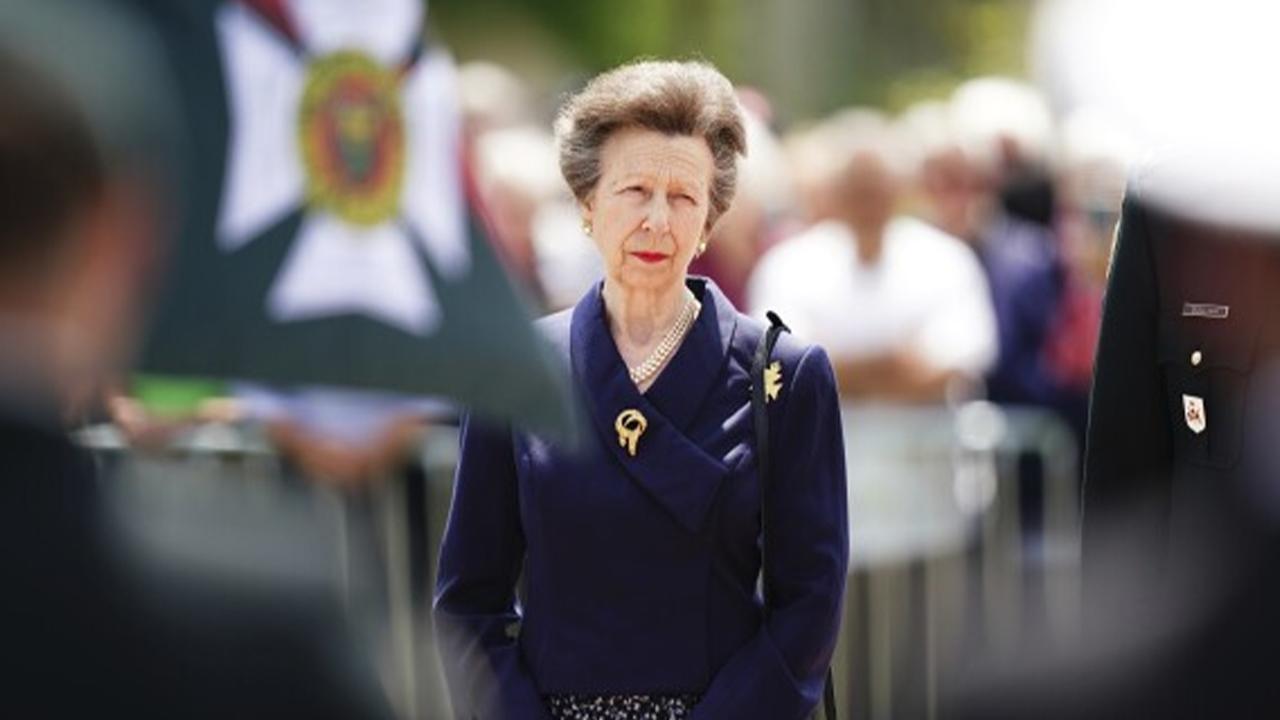
King's sister, 73, released from hospital after Gatcombe Park fall
MoHRE Sets June 30 Deadline for Emiratisation Targets Enforcement
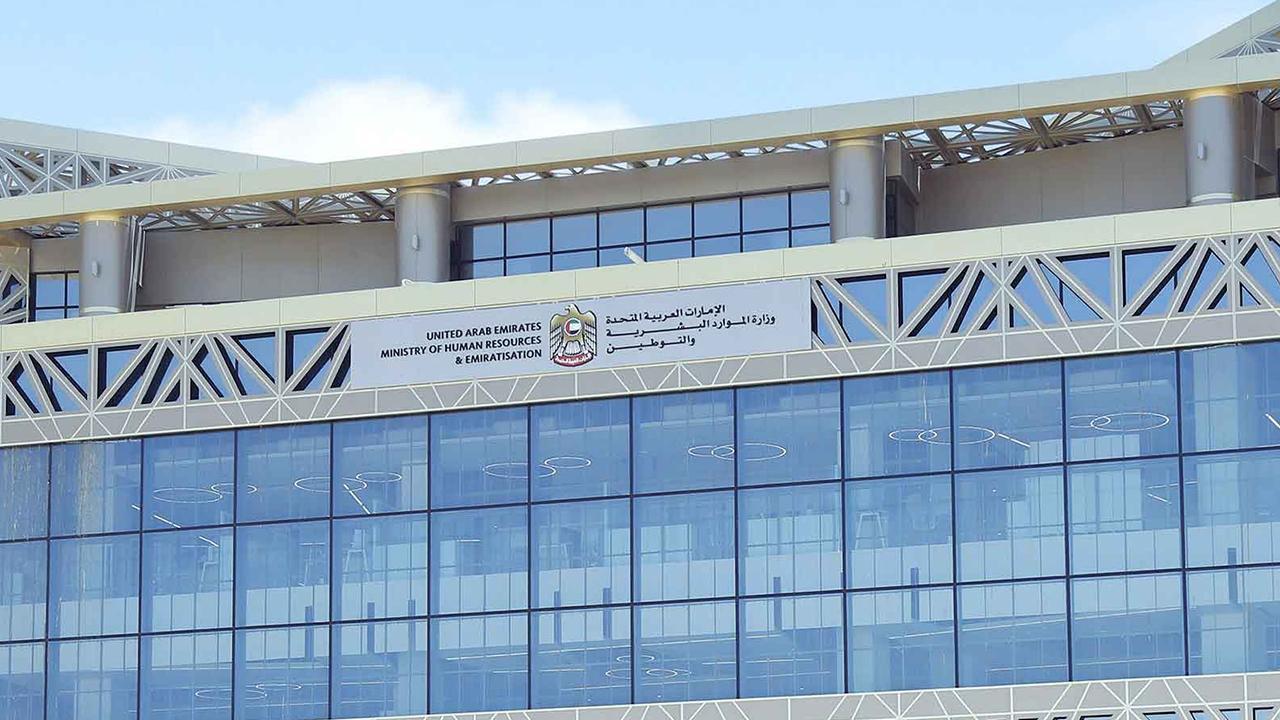
The Ministry of Human Resources and Emiratisation (MoHRE) has officially set June 30 as the deadline to achieve Emiratisation targets for the first half of 2024
Einstein's Warning Letter to US President Roosevelt Auctioned for $4 Million
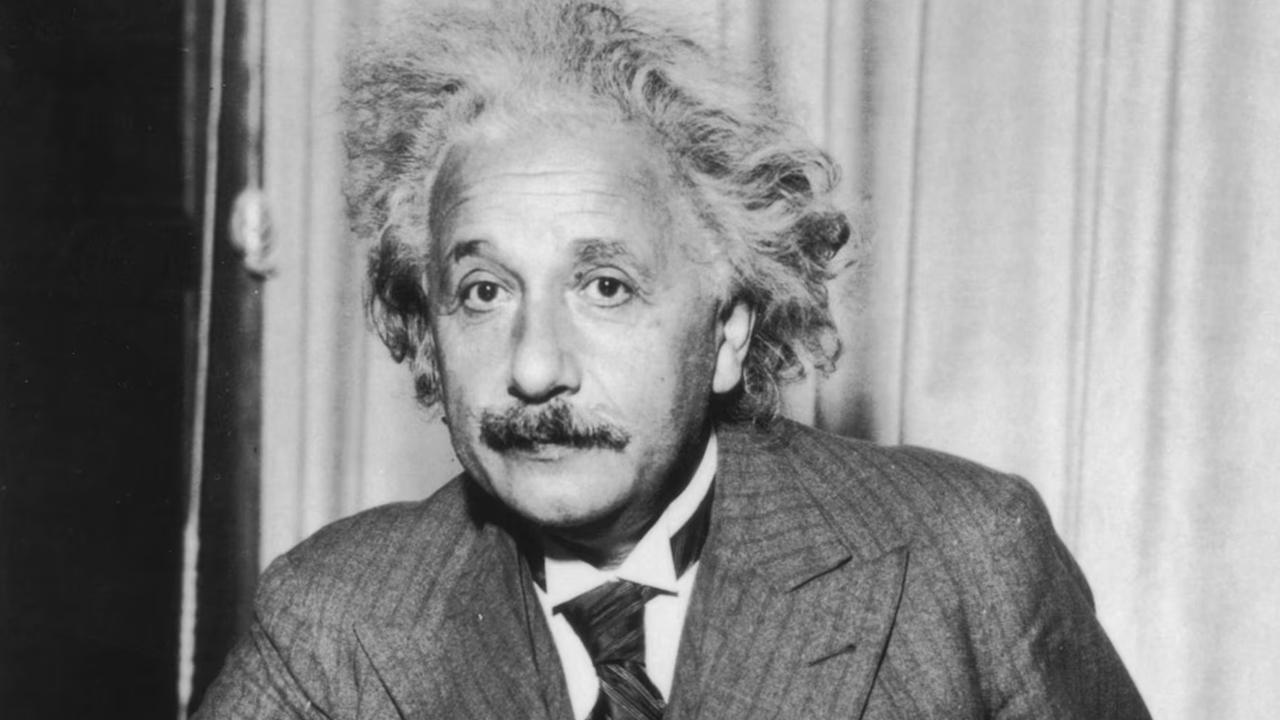
Einstein's letter to Roosevelt, urging US nuclear program, to auction for $4 million+
Five Missiles Hit Near Ship in Red Sea in Suspected Attack by Yemen's Houthi Rebels

The missiles struck near the vessel but, fortunately, caused no damage, according to the UKTMO.
Explore India's Most Beautiful Train Journeys: Must-See Adventures
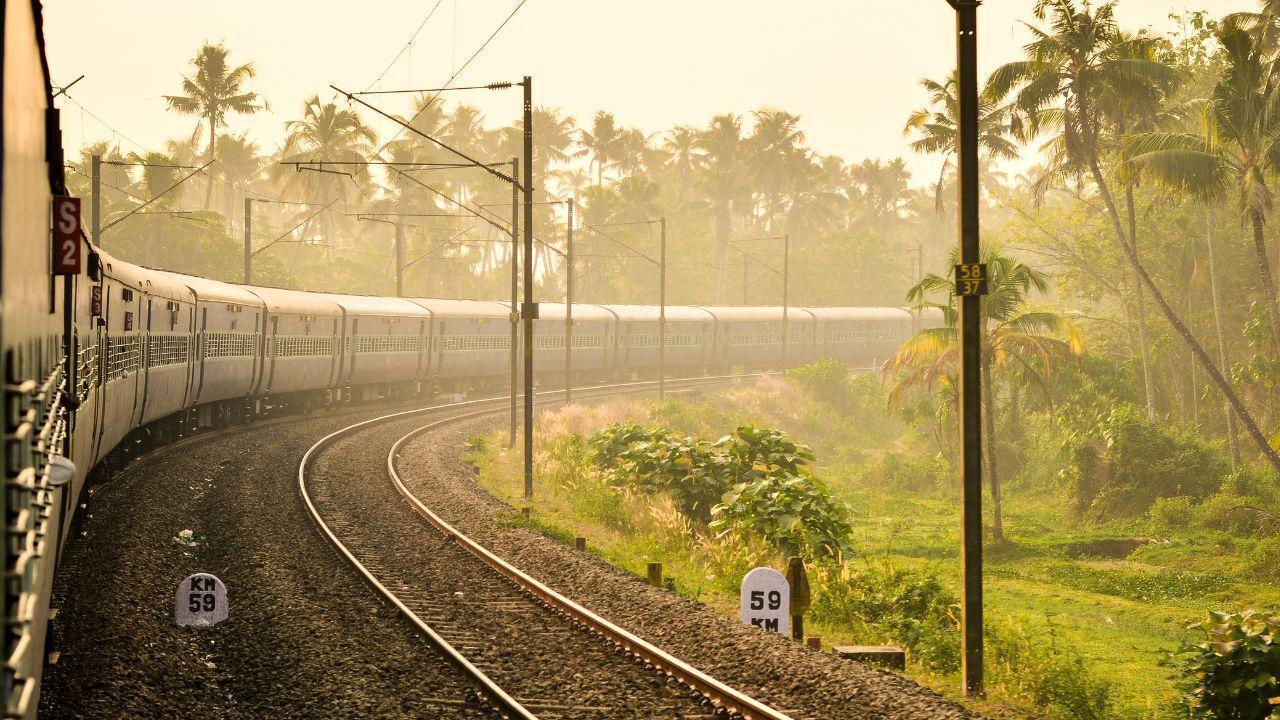
Embark on a scenic adventure through India's diverse landscapes with these must-experience train journeys. From the misty hills of Darjeeling to the coastal cha
ISS Astronauts, Including Sunita Williams Seek Shelter as Russian Satellite Breaks Up Nearby
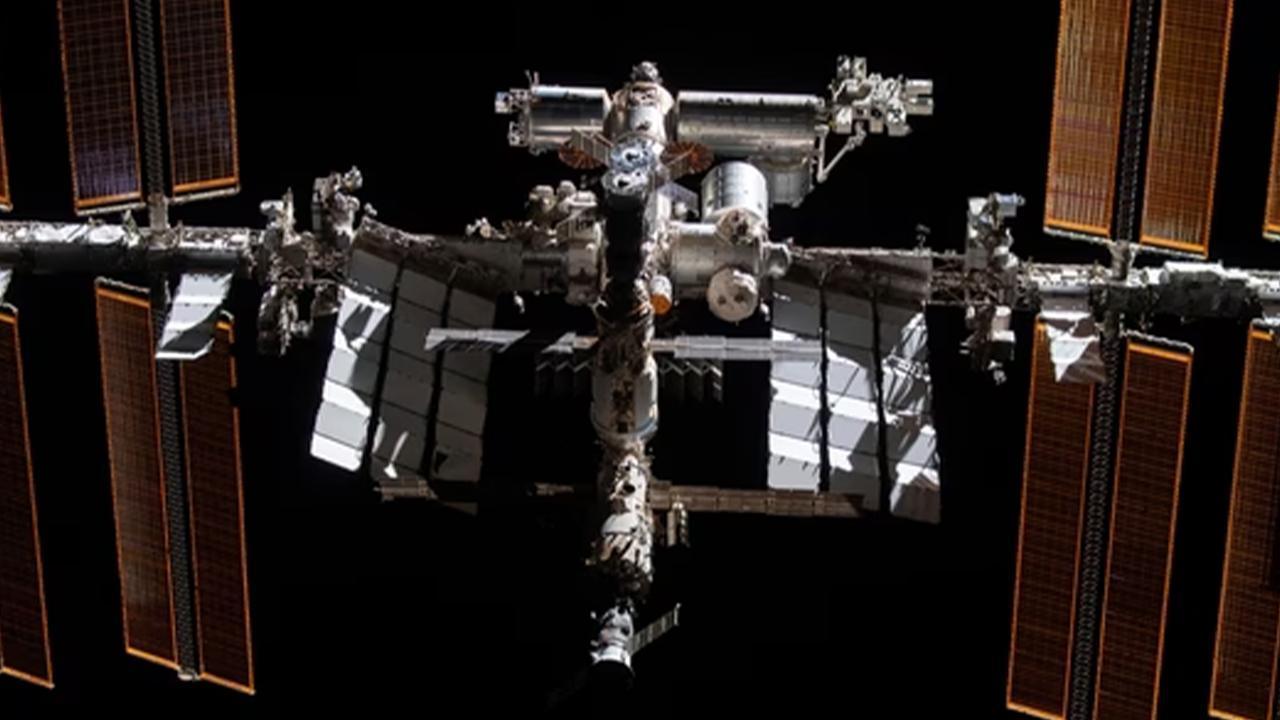
Sunita Williams and Butch Wilmore, aboard the ISS, are anxious as a decommissioned satellite breaks up nearby with no rescue date set.
UAE Denies Allegations of Emirati Passports in Sudan Battlefield

Four UAE nationals, mentioned in the issue, were in Sudan before the conflict, engaged in charitable activities welcomed by local authorities.
Kenyan Court Authorizes Military Deployment to Suppress Protests
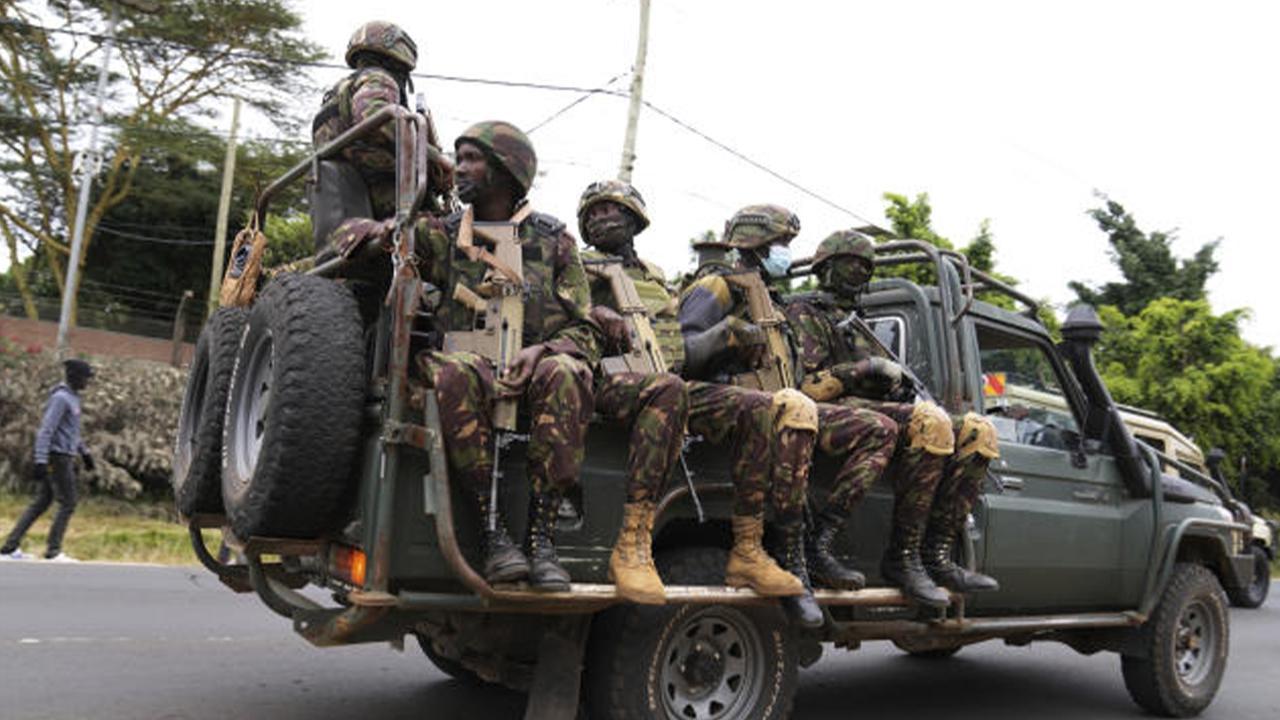
Kenya's High Court has sanctioned military intervention to quell escalating anti-tax protests, which had previously strained police resources.
Philippine Troops Clash with Communist Rebels, Kill 10 Insurgents

Philippine troops have reported killing at least 10 suspected communist guerrillas in a remote northern area following a clash.
Kosovo Court Sentences Four Serbs for 2018 Killing of Politician
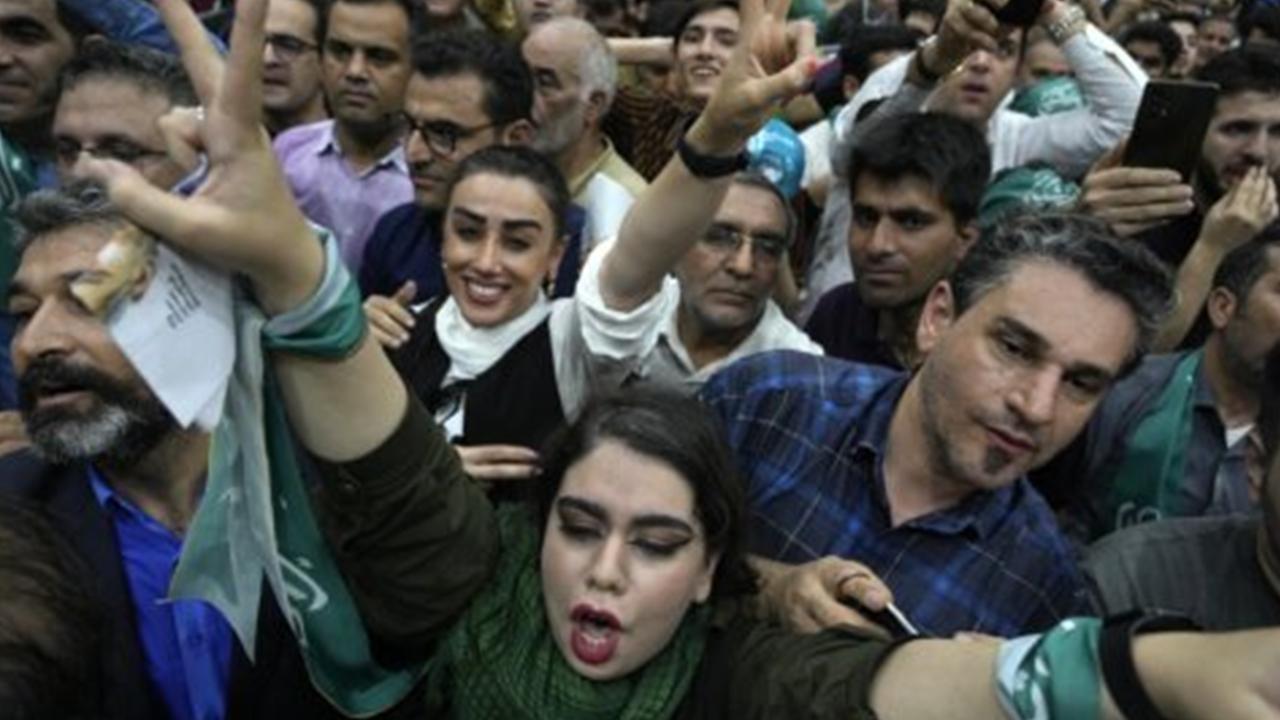
A Kosovo court has handed down sentences ranging from four to 10 years in prison to four ethnic Serbs convicted of the murder of a moderate Serb leader.
Explore 5 Sacred Temples Worldwide

Embark on a journey of spiritual wanderlust with our guide to 5 sacred temples around the world. Explore ancient wonders and cultural marvels that every travell
UAE Genome Program Set to Revolutionize Medical Care for Emiratis
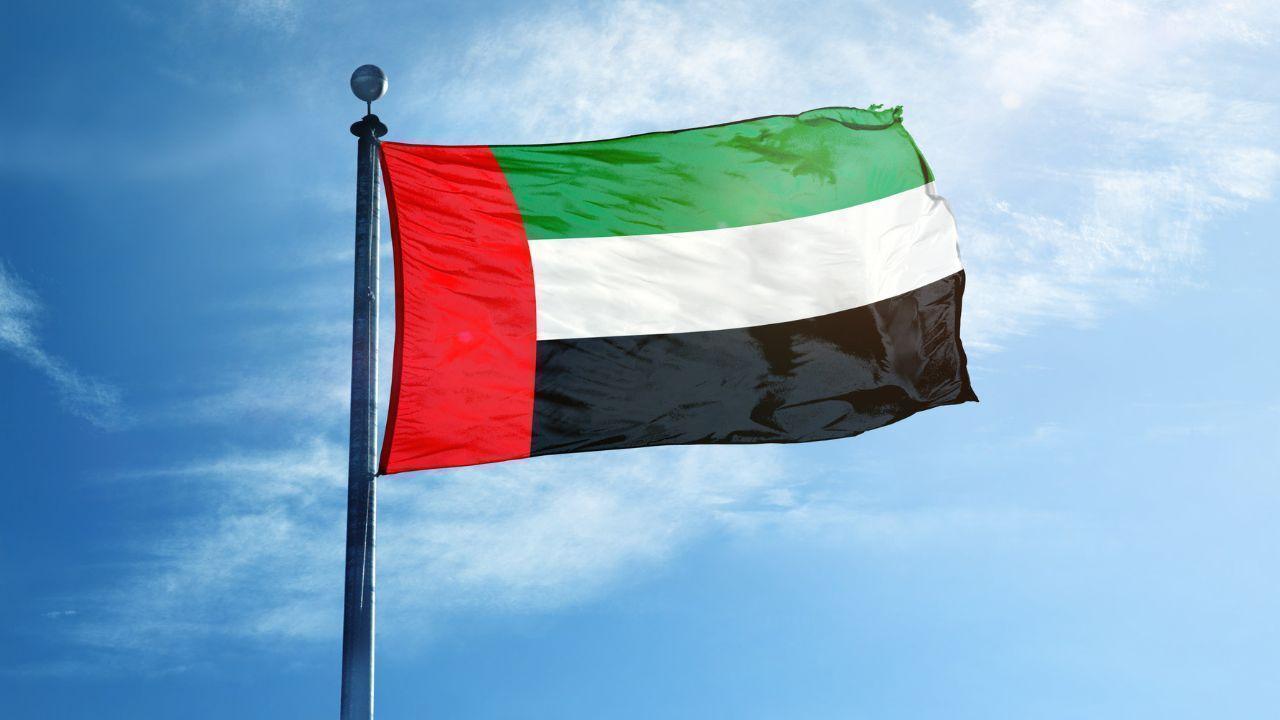
UAE aims to lead in genomics by decoding genetic profiles of one million Emiratis for advanced medical treatments.
Deluge Hits Lutyens' Delhi: Politicians' Homes Flooded, MPs Assisted Amid Heavy Rain
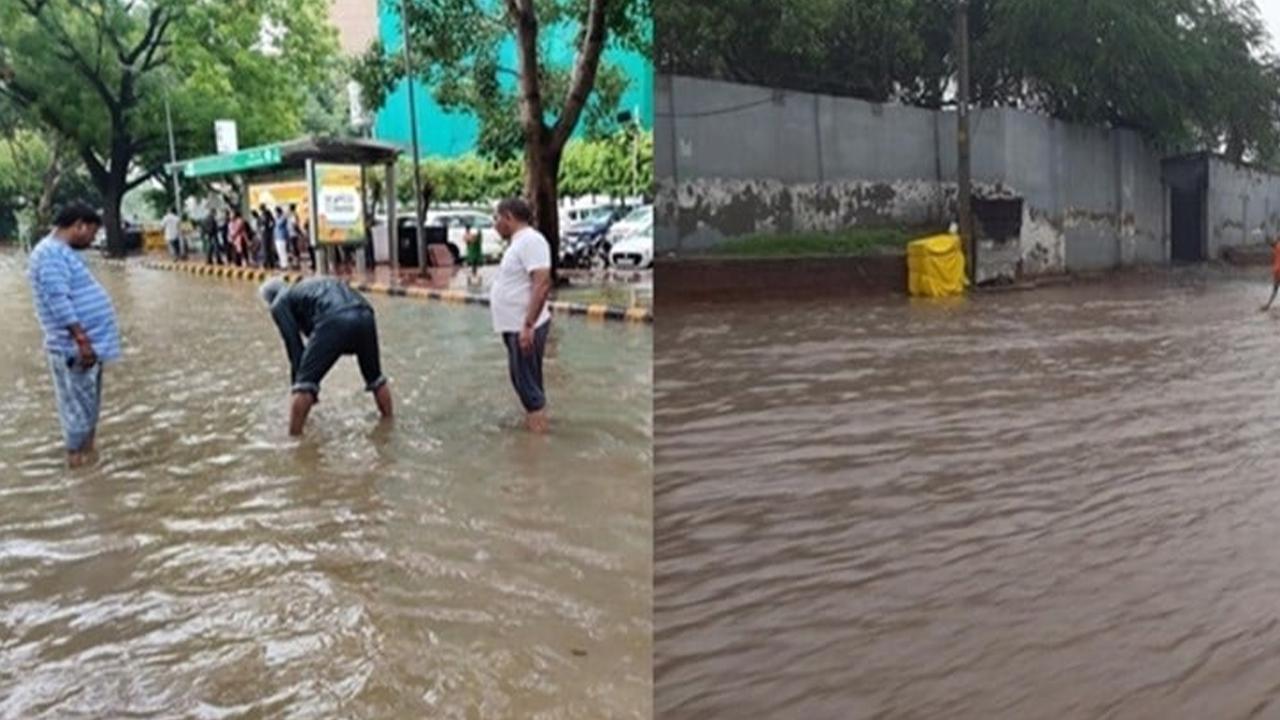
A video captured Samajwadi Party MP Ram Gopal Yadav being carried by his staff through waterlogged streets to his vehicle.
Meghan Markle and Victoria Beckham's Rift: What Went Wrong?

Meghan Markle's friendship with the Beckhams reportedly ended over lifestyle clashes and Meghan's discomfort with their wealth.
Sri Lanka Detains 60 Indian Nationals for Illegal Operations

In Colombo, Sri Lanka's Criminal Investigations Department has apprehended 60 Indian nationals involved in online financial scams.
3001E, 30 Floor, Aspin Commercial Tower, Sheikh Zayed Road, Dubai, UAE
+971 56 450 3476
info@dxbnewsnetwork.com
© DNN. All Rights Reserved.